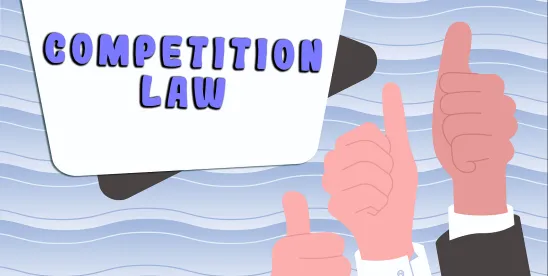On April 23, 2024, the U.S. Federal Trade Commission (FTC or Commission) finalized a rule, by a vote of 3-2, abolishing the vast majority of employee covenants not to compete across the United States (the Non-Compete Rule or Rule). Once it is effective (120 days from the date the Rule is published in the Federal Register) which is expected to be late August or early September, and unless successfully challenged in federal court, the Rule will ban non-compete agreements with employees of all ranks and seniorities in virtually all industries across the United States. Our Firm’s overview and summary of the Rule is available here.
Immediately following the issuance of the Rule, the U.S. Chamber of Commerce and other groups filed lawsuits challenging the Rule, seeking injunctive relief to delay the effective date as well as a ruling to vacate the Rule in its entirety. Litigation over the Rule will raise a host of interesting constitutional, statutory, and administrative issues. One of the leading grounds for a challenge will be the so-called “major questions doctrine,” which requires clear Congressional authorization before an administrative agency will be found to have the power to decide major policy questions. The precedents that will guide the various courts that will consider the Rule are difficult to reconcile, and it is possible that different courts may decide these cases in seemingly inconsistent ways. There is even a potential for different results to apply in different parts of the country. Indeed, two of the FTC’s five Commissioners expressed concerns about the legality of the Non-Compete Rule with one Commissioner stating that she believes the Rule likely will not survive legal challenge.
Health Care & Life Science’s Response to the Proposed Rule
Non-Compete agreements have long been a feature in contracts entered into by health care & life sciences industry participants — including physicians, senior clinicians, and executives. These arrangements are viewed as critical to maintaining the value of the businesses with whom the aforementioned individuals are employed, especially given the personal relationships many of them have with patients, customers, vendors, and suppliers with such businesses.
In response to the proposed Rule, thousands of industry participants provided comments to the FTC. Certain participants argued for a health-care industry wide exemption from the Rule, which the FTC rejected. While certain health care providers will be exempted from the Rule, many will not. As such, and if the Rule survives legal challenge, health care industry participants ─ including physician groups, nonprofits, management services organizations, and ambulatory surgery centers ─ should carefully consider how the Rule will impact their recruitment and retention strategies going forward.
Overview of the FTC’s Non-Compete Rule
The FTC’s Non-Compete Rule has three main components:
- For the great majority of workers, the Non-Compete Rule declares it an “unfair method of competition” to enter into or enforce a non-compete agreement. “Workers” are defined broadly to include employees, independent contractors, externs, interns, volunteers, apprentices, and sole proprietors. In other words, employers will no longer be able to force employees to sign covenants not to compete or to enforce such covenants against most employees.
- Before the effective date of the Rule, employers that have non-competes subject to the Non-Compete Rule must notify affected employees that their non-compete will not and cannot be enforced. The Rule includes model language to this effect that can be shared with employees.
- To the extent that a non-compete agreement may be permitted under state law, the Non-Compete Rule states that it preempts such state law.
As noted above, the Non-Compete Rule is scheduled to go into effect 120 days after its publication in the Federal Register. Although the Rule has not yet been published, the effective date is likely to fall in late August or early September.
FAQs
1. Q: Does the Non-Compete Rule apply to all health care entities and employers?
A: Not all, but many health care entities and employers will be subject to the Non-Compete Rule.
Notably, and importantly, the Rule will not apply to some nonprofit health care entities such as certain tax-exempt hospitals and health systems (which fall under Section 501(c)(3) of the Internal Revenue Code)[1]. This exemption is not policy-based but instead reflects that the FTC Act only reaches corporations that are “organized to carry on business for its own profit or that of its members.” One will not find this exemption in the text of the Rule itself.
The above notwithstanding, there are ambiguities in the Rule that will need to be carefully considered. For example, even though tax-exempt organizations generally fall outside the scope of the FTC Act, the scope of that exemption is unsettled and can be hazy. For example, the FTC in the past has successfully brought actions against physician-hospital organizations or independent physician associations that, despite being organized as non-profits, functionally existed to profit their members. Additionally, some health care organizations use for-profit medical groups or professional corporations to employ physicians and other professionals that are otherwise subject to a “corporate practice of medicine” prohibition. Additionally, nonprofit hospitals sometimes contract with for-profit staffing companies to provide staffing coverage. These for-profit entities may well be subject to the Non-Compete Rule. Hospitals and health systems should be careful to identify those members of their corporate families that may be subject to the Non-Compete Rule — and those that may not.
Another, more complicated question, which is unsettled, is how health care entities that are part of, or sponsored by, state or local governments, such as university-based hospitals or faculty practice plans, will be treated under the Rule and the application of the “State Action Doctrine,” which generally exempts state actors from liability under the federal antitrust laws when they act pursuant to a clearly articulated legislative policy of displacing competition and are otherwise subject to active state supervision.
Other than as described above, all other health care entities and employers will be subject to the Rule.
2. Q: Does the Non-Compete Rule apply to all employees?
A: The Rule applies to all “workers,” which is defined broadly to include employees, independent contractors, externs, interns, volunteers, apprentices, and sole proprietors. In practice, the great majority of workers will be subject to the Rule. See Page 95of Rule.
However, the Rule does not disturb non-compete agreements made before the Rule’s effective date for those workers the FTC defines as “senior executives” (as further defined in question three below). Instead, the Rule declares it an “unfair method of competition” to enter into or enforce a non-compete agreement with a senior executive when that agreement is made after the Rule’s effective date. In other words, it will not be a violation of the Rule to enforce a pre-existing non-compete against a senior executive, but after the Rule’s effective date employers may not enter into a new non-compete with such senior executives. Existing contracts with “senior executives” that by their terms do not expire should remain valid. However, contracts that must be renewed would likely be viewed by the FTC as a new non-compete agreement prohibited by the Rule.
For workers who are not “senior executives,”, pre-existing non-competes will no longer be enforceable after the Rule’s effective date. See Page 2-3of Rule.
3. Q: Who is a “senior executive?” Will physician employees be deemed to be “senior executives?”
A: A “senior executive” is defined as a worker who earns at least $151,164 per year (the 2025 salary threshold for a “highly compensated employee” under the Fair Labor Standards Act) and serves in a “policy-making position” with the organization. For example, physician employees or owners of a private physician practice with authority to make policy decisions about the whole business are likely to qualify as senior executives. In contrast, a physician who works within a covered hospital system or as a non-owner employee of a physician practice likely will not have policymaking authority with respect to the business and thus is unlikely to qualify as a senior executive. See Page 269-270of Rule.
Importantly, whether a worker has “policy-making authority” is assessed based on the business as a whole, not a particular office, department, or other sublevel. The Rule requires considering the authority a worker has to make policy decisions that control a significant aspect of a business without needing a high-level worker’s approval. By way of example, the FTC noted that neither the head of a covered hospital’s surgery practice nor a physician who runs an internal medical practice that is part of a covered hospital system would be senior executives, assuming they are decision-makers only for their particular divisions See Page 272-273of Rule.
It is noteworthy that the FTC specifically stated that “many” physicians will not qualify as senior executives because, despite the high median income for physicians, they are not typically in policy-making positions within their employer organizations. See Page 550of Rule.
4. Q: Is there a size limit (of employees) which may exempt an employer?
A: No. The Non-Compete Rule is expansive and covers employers of all sizes (with limited exceptions for employers who are outside of the FTC’s jurisdiction, including certain nonprofit, tax-exempt entities, as discussed in question one above).
5. Q: Does the prohibition on a non-compete apply while the employee is employed, or does it apply only after employment?
A: The Non-Compete Rule applies to agreements that restrict workers from taking work with another employer “after the conclusion” of their employment. Therefore, subject to state law, an employer would still be able to prohibit current employees from working at the same time for a competitor (e.g., on a part-time basis).
6. Q. Does it matter how the employment of an employee is terminated?
A. No. The Non-Compete Rule applies irrespective of how an employee’s employment is terminated.
7. Q: What constitutes a “non-compete” and does that concept include non-disclosure agreements, non-solicit clauses, no-hire clauses, liquidated damages clauses, etc.?
A: Under the Non-Compete Rule, “traditional” non-compete clauses, i.e., prohibitions on work after employment ends, are forbidden. The Non-Compete Rule also applies to provisions that “penalize” a worker (e.g., liquidated damages, forfeiture of severance or equity, buyout clauses, no-hire clauses) for seeking or accepting work after the conclusion of the person’s employment. Further, the Rule includes a catchall provision to capture other types of agreements that “function[ ] to prevent” a worker from accepting different work after the conclusion of their employment. This catchall language may potentially encompass other forms of restrictive covenants, including non-solicitation agreements.
While the FTC’s rulemaking notice refers to non-solicitation clauses, customer- or client-based “no business agreement[s],” and non-hire agreements as “generally not non-compete clauses,” the FTC notes that such restrictions could potentially rise to the level of a prohibited non-compete based on a fact-specific inquiry. It remains an area of uncertainty where the FTC or courts would draw the line. Thus, we believe that such clauses should be narrowly tailored, not overly broad and reasonably necessary to protect the employer’s legitimate business interests upon the termination of an employee’s employment. Seeking counsel when drafting such arrangements is recommended.See Page 76-842of Rule.
8. Q: Does the Non-Compete Rule apply to business owners who are also employees of that business?
A: The Rule applies to all “workers,” including business owners who are also employed by the business, subject, of course, to the conditions applicable to pre-existing non-competes for senior executives (as discussed in question three above).
However, a business owner who is also an employee may fall within the “sale of a business exception” (discussed in greater detail below in question nine) in connection with a qualifying sale of the business. In that case, a non-compete may be enforceable against the seller.
9. Q: Does the Non-Compete Rule apply to business owners who are not employees, such as owners of ambulatory surgery centers, imaging centers, management services organizations, etc.?
A: The Non-Compete Rule does not apply to non-competes “entered into by a person pursuant to a bona fide sale of a business entity, of the person’s ownership interest in a business entity, or of all or substantially all of a business entity’s operating assets.” See Page 4of Rule. Therefore, non-competes entered into with business owners in connection with the sale of a business will remain enforceable under the Rule.
Further to the above, and to be clear, a seller of a business entity can agree to a non-compete individually, but not on behalf of any of that business’s workers. The Rule prohibits non-competes for workers, including in a sale of business context.
10. Q. Does the Non-Compete Rule apply to non-competes between businesses?
A. No. The Rule applies only to non-competes between businesses and workers. For example, the Rule does not apply to non-competes in franchisor/franchisee contracts, but it does apply to non-competes between employers and workers at franchises. However, those other non-competes, including between businesses, would still be subject to other applicable state and federal laws, including the antitrust laws.
11. Q: If an employer has employees subject to non-competes currently, what rights or obligations does an employer have?
A: Those businesses that are subject to the Rule should be prepared for the end of any non-competes that are not made with senior executives. Before the effective date of the Non-Compete Rule, businesses should also be prepared to distribute the required notices informing employees that their non-competes will no longer be enforced. However, any senior executives who fall within the Non-Compete Rule’s definition should be excluded from the distribution of that notice. Further, businesses should review their other restrictive covenants, including non-solicitation and no-hire clauses, to ensure those clauses are narrowly tailored to protect their legitimate interests. Finally, businesses should have confidentiality agreements in place with employees and should prepare for a potential wave of trade secret litigation, as employees are increasingly enticed to start their own businesses or leave to work for competitors.
12. Q. What action is taken if the Non-Compete Rule is violated?
A. Violations of the Rule will be deemed a violation of Section 5 of the FTC Act as an “unfair method of competition.” See Page 1-2 of Rule.The FTC can pursue adjudication under Section 5(b) of the FTC Act or seek an injunction in federal court against a party that has engaged in an unfair method of competition. The FTC cannot obtain civil penalties or other monetary relief against parties for using an “unfair method of competition,” however, the agency can obtain civil penalties in court if a party is ordered to cease and desist from a violation and fails to do so. 15 U.S. Code § 45(m); see Page 24of Rule. Additionally, once the Rule is effective, workers and other market participants can report information on a suspected violation of the Rule to the FTC.
13. Q. Can a business hire someone who had a non-compete in their prior job?
A. When the Non-Compete Rule officially goes into effect, yes, so long as the worker is not a senior executive bound by a non-compete implemented before the Rule’s effective date.
14. Q: Does the Non-Compete Rule apply to non-employees?
A: Yes. The Non-Compete Rule applies to all “workers,” a term which is defined broadly to include employees, independent contractors, externs, interns, volunteers, apprentices, and sole proprietors. See Page 95of Rule.
15. Q: When does the Non-Compete Rule take effect?
A: The Non-Compete Rule is slated to take effect 120 days after the final rule is published in the Federal Register, which would likely put the effective date in late August or early September 2024. See Page 5of Rule. However, the effective date may well change based on the legal challenges that have been brought as discussed above.
Want to Learn More?
[1] Other tax exempt organizations are similarly exempted and, thus, tax exempt philanthropic arms of hospital and health systems are likely to be exempt from the Rule.







 />i
/>i

